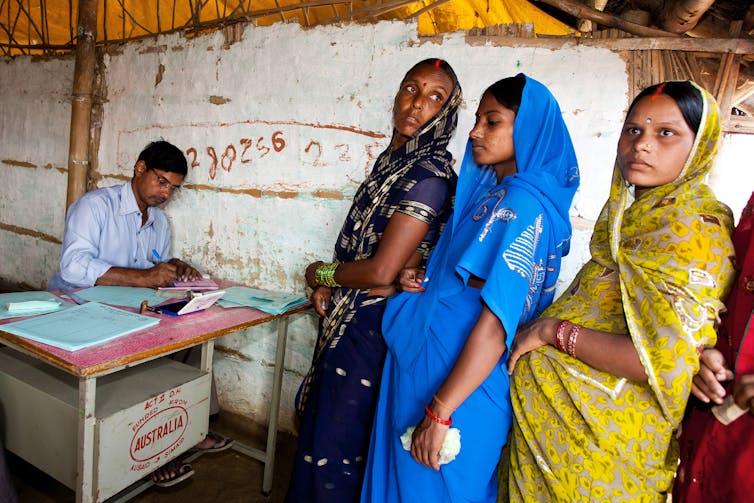Surrogacy may have become a popular way for many couples in the limelight to have children – notably Kim and Kanye, Elton John and David Furnish, as well as Sarah Jessica Parker and her husband Matthew Broderick. But it isn’t just a service for the rich and famous.
People may choose to use a surrogate for all sorts of reasons – fertility issues being the obvious one – but people with health problems or complications with previous pregnancies as well as same-sex couples or single people looking to start a family, are all also common clients.
In the UK, altruistic (unpaid) surrogacy is legal, but commercial (paid) surrogacy is not. At present, however, Britons are the largest consumers of the Indian commercial surrogacy industry.
Surrogacy is reported to bring in US$400m every year to the Indian economy. But the Indian market has come under fire for being exploitative. Indian surrogate mothers are typically poor, and are paid around £4,500 to carry a foetus to term.
The industry is also unregulated. This gives surrogacy clinics a large amount of power and control over the process. Many surrogates are required to live in surrogacy hostels, run by clinics, for the duration of their pregnancy – away from friends and family members.
A change in the law
India is in the process of outlawing commercial surrogacy in favour of an altruistic model, available to Indian nationals only. And surrogacy laws in the UK may also be set to change.
The Law Commissions of England and Wales, and Scotland, recently commenced a three-year project to review and recommend improvements to surrogacy arrangements in the UK. One key area targeted for reform is the way in which uncertainty in the law may be encouraging UK residents to look overseas for surrogates.
It may not be enough for countries to amend their laws in isolation. Improvements of national laws are of course welcome, but a collective international response is preferable. This is because, even if the Indian bill passes – and the UK maintains its altruistic approach – this does not fix the problem.
Surrogacy agencies in India and elsewhere could make use of loopholes that exist in the law. Eggs, sperm, embryos, surrogates and intended parents could simply be moved across borders to countries where commercial surrogacy is not banned. What’s more, when one industry closes, another one can easily open elsewhere. This is the case in Ukraine, which is fast becoming a surrogacy hot spot now that other countries have banned the practice.
Defining infertility
Another factor to consider in all of this, is the World Health Organisation’s proposal to change the definition of infertility. This would move it away from a clinical disease-based definition – where it is viewed as a disability – to a view that includes a more social definition, recognising it as a “right to reproduce”.
Under the new definition, infertility would no longer be seen as “the failure to achieve a clinical pregnancy after 12 months or more of regular unprotected sexual intercourse”. Rather, it would also be considered to include cases when “single men and women without medical issues … do not have children but want to become a parent”.
As yet, the proposed definition has not been officially adopted by the WHO. In fact, the WHO has stated that it will retain a clinical focus and refrain from making recommendations about fertility service provision – even if there were to be a change to its definition.

Hypothetically, the result of this change would mean that those who fall under the new social account of infertility could also receive access to reproductive services. On the one hand, this is a progressive move – why shouldn’t single men and women and same-sex couples receive help to become parents?
But on the other hand, there are concerns that the expanded definition ignores the gender dynamics inherent to the provision of reproductive services.
A right to a womb
Any change in the law needs to recognise that it is women’s bodies alone that can perform this “service”. In the case of male gay couples, who cannot carry a foetus themselves, women’s bodies will be necessary in order to treat a couple’s infertility. This could be either through international paid surrogacy, or the domestic altruistic model.
If this definition does take hold, there may well be an increase in the demand for surrogacy services and the further liberalisation of surrogacy laws to cater for this demand. Expanding access to reproductive services could lead to an increase in exploitation, health risks and the further commodification of women’s bodies. And without proper acknowledgement that it is women who will carry out the labour involved in gestating a child, a key ethical concern is neglected.
This is why there needs to be an international consensus on surrogacy – and a joined-up approach to the law. There may well be difficulties in getting people from different places, cultures or backgrounds to agree the demand for and effects of current surrogacy practices, but surrogacy deserves a global conversation.


